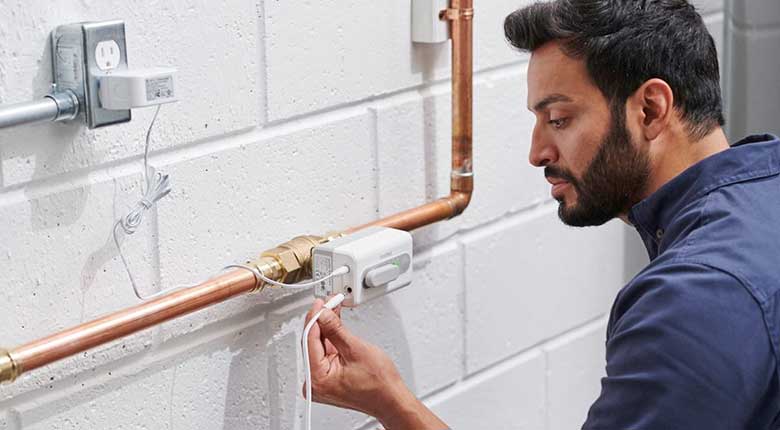Water leaks have long been a silent enemy, quietly undermining homes, businesses, and infrastructure. Often undetected until the damage is significant, leaks can lead to costly repairs, health hazards, and extensive water waste. However, modern technology is dramatically changing the landscape of plumbing, offering smart solutions for water leak detection that can save both money and resources. In this blog, we explore how cutting-edge innovations are revolutionizing the way we detect and manage water leaks.
The Rising Importance of Water Leak Detection
Water is a precious resource, and its conservation is becoming increasingly critical due to climate change, growing populations, and aging infrastructure. According to the Environmental Protection Agency (EPA), household leaks can waste nearly 1 trillion gallons of water annually in the United States alone. Traditional leak detection methods often involve significant guesswork and invasive inspections and can miss leaks until severe damage occurs.
Smart water leak detection technology addresses these challenges head-on by offering real-time, automated monitoring. These systems not only identify leaks early but also provide insights that help prevent future issues. They are quickly becoming a must-have in modern plumbing systems.
How Smart Leak Detection Works
At its core, smart water leak detection involves the use of sensors and connected devices to monitor plumbing systems. Here are some key components and how they function:
- Sensors: Placed near potential leak points such as under sinks, behind toilets, and near water heaters, these sensors detect moisture or unusual water flow patterns.
- Flow Monitors: Installed at the main water supply, these devices track water usage patterns. If they detect continuous water flow that deviates from normal usage, they trigger alerts.
- Connectivity: Using Wi-Fi or cellular networks, these devices send data to cloud-based platforms.
- Alerts: Users receive real-time notifications on their smartphones or computers if a leak is detected, allowing for immediate action.
- Automatic Shutoff Valves: Advanced systems can automatically shut off the water supply when a major leak is detected, minimizing damage.
Benefits of Smart Water Leak Detection
Early Leak Detection
The earlier a leak is detected, the less damage it causes. Smart systems can detect leaks as small as a few drops per minute, identifying problems before they escalate into disasters.
Cost Savings
Water leaks can lead to the massive repair costs or high water bills. Smart detection systems can dramatically reduce these expenses by alerting homeowners and businesses at the first sign of trouble.
Water Conservation
With droughts affecting many parts of the world, water conservation is more important than ever. Smart leak detection prevents unnecessary water loss, supporting global sustainability efforts.
Peace of Mind
Whether you’re at home, at work, or on vacation, smart water leak detection systems provide peace of mind. Knowing that your property is being continuously monitored allows you to relax, knowing you’ll be alerted if something goes wrong.
When smart technology detects a leak, having a trusted local plumber Adelaide ready to respond quickly is essential to minimize damage and repair costs
Key Players in the Market
Several companies are leading the charge in developing smart water leak detection technology. Here are a few notable players:
- Flo by Moen: Offers comprehensive leak detection and water monitoring systems that can automatically shut off water to prevent damage.
- Phyn: Utilizes machine learning to differentiate between different types of water usage, offering detailed insights and fast leak detection.
- Honeywell Home: Their Lyric Wi-Fi Water Leak and Freeze Detector monitors for leaks and extreme temperature changes, sending real-time alerts.
- Guardian Leak Prevention System: Provides sensor-based protection and automatic shut-off capabilities to guard against leaks.
Applications Beyond the Home
While residential homes are the most common users of smart water leak detection technology, other sectors are rapidly adopting these systems as well:
- Commercial Buildings: Offices, hotels, and retail spaces use these systems to protect their investments and avoid costly disruptions.
- Industrial Facilities: Manufacturing plants and warehouses integrate smart leak detection to safeguard equipment and maintain operational integrity.
- Municipal Infrastructure: Cities use smart technology to monitor aging water systems, detect leaks, and optimize maintenance efforts.
Future Trends in Water Leak Detection
The future of water leak detection looks promising as technology continues to advance:
AI and Machine Learning
Artificial intelligence are the machine learning and enabling systems to detect the predict leaks. By analyzing patterns and anomalies, AI can forecast potential problems before they occur.
Integration with Smart Home Systems
As homes become increasingly interconnected, smart water leak detection systems are being integrated into larger smart home ecosystems, working seamlessly with other devices like thermostats, security systems, and voice assistants.
Improved Sensor Technology
Advancements in sensor sensitivity and miniaturization mean that future systems will be even more accurate and easier to install.
Sustainability Initiatives
Expect greater emphasis on systems that not only prevent damage but also promote overall water efficiency, aligning with global sustainability goals.
How to Choose the Right System
When selecting the smart water leak detection system consider is the following factors:
- Coverage: Ensure the system can monitor all critical areas.
- Alerts and Notifications: Choose a system with reliable, customizable alerts.
- Automatic Shutoff: This feature can be a lifesaver during a major leak.
- Ease of Installation: Some systems require professional installation while others are the DIY friendly.
- Integration: Check if the are system integrates with the existing smart home devices.
- Cost: Balance upfront costs against potential savings in repair bills and water conservation.
Conclusion
Smart water leak detection is revolutionizing the plumbing industry by offering proactive, reliable, and user-friendly solutions to an age-old problem. With real-time monitoring, predictive analytics, and automatic shutoff capabilities, these technologies are not just changing the plumbing game they are redefining it.
In an era where conservation, efficiency, and damage prevention are more critical than ever, investing in smart water leak detection is a smart move. Whether you’re a homeowner, a business manager, or a municipal planner, leveraging the power of technology to guard against leaks ensures a safer, more sustainable future.

































